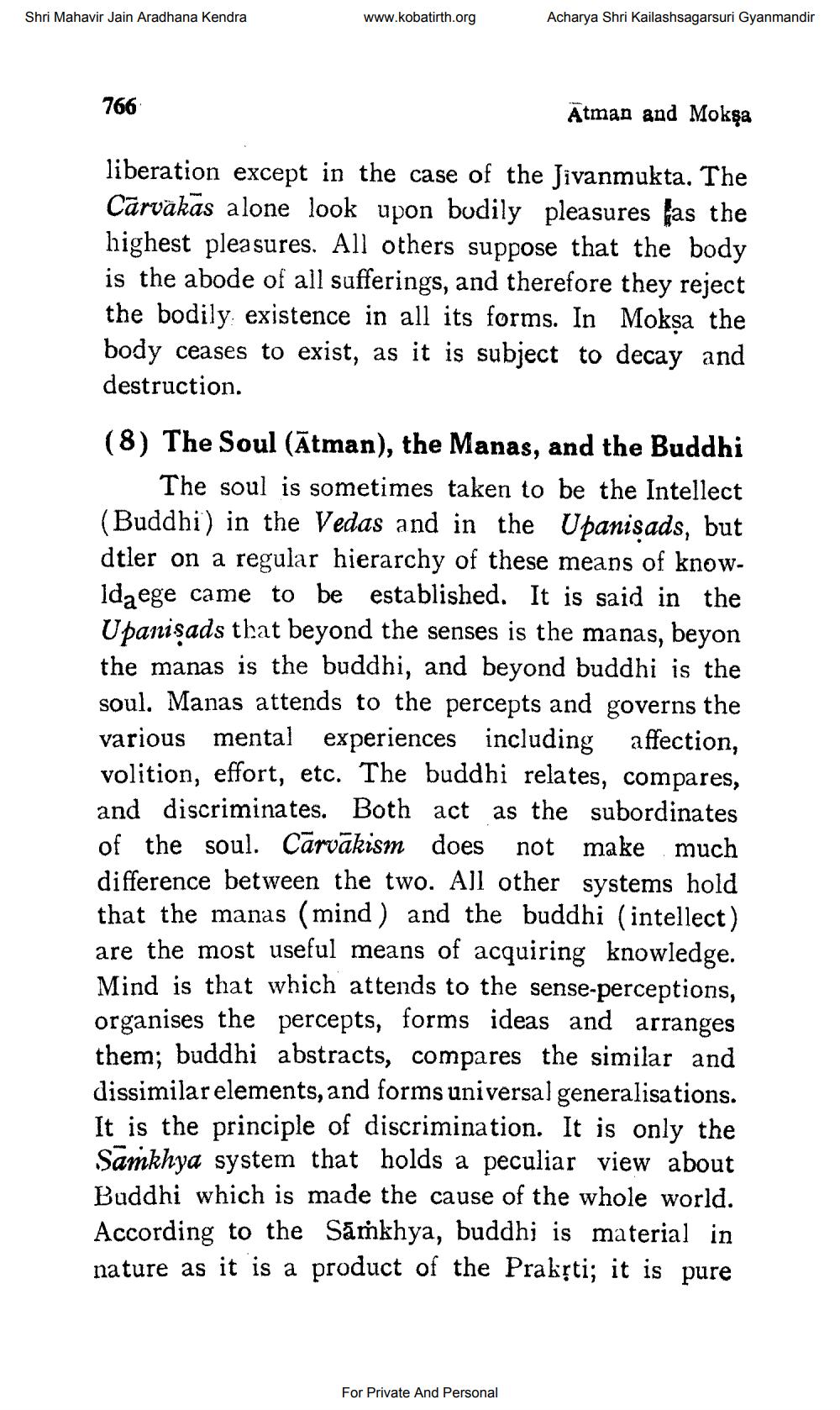________________
Shri Mahavir Jain Aradhana Kendra
www.kobatirth.org
Acharya Shri Kailashsagarsuri Gyanmandir
766
Atman and Moksa
liberation except in the case of the Jivanmukta. The Carvakās alone look upon budily pleasures fas the highest pleasures. All others suppose that the body is the abode of all sufferings, and therefore they reject the bodily existence in all its forms. In Moksa the body ceases to exist, as it is subject to decay and destruction. (8) The Soul (Atman), the Manas, and the Buddhi
The soul is sometimes taken to be the Intellect (Buddhi) in the Vedas and in the Upanişads, but dtler on a regular hierarchy of these means of knowldgege came to be established. It is said in the Upanişads that beyond the senses is the manas, beyon the manas is the buddhi, and beyond buddhi is the soul. Manas attends to the percepts and governs the various mental experiences including affection, volition, effort, etc. The buddhi relates, compares, and discriminates. Both act as the subordinates of the soul. Cārvākism does not make much difference between the two. All other systems hold that the manas (mind) and the buddhi (intellect) are the most useful means of acquiring knowledge. Mind is that which attends to the sense-perceptions, organises the percepts, forms ideas and arranges them; buddhi abstracts, compares the similar and dissimilar elements, and forms universal generalisations. It is the principle of discrimination. It is only the Samkhya system that holds a peculiar view about Buddhi which is made the cause of the whole world. According to the Sámkhya, buddhi is material in nature as it is a product of the Prakrti; it is pure
For Private And Personal




